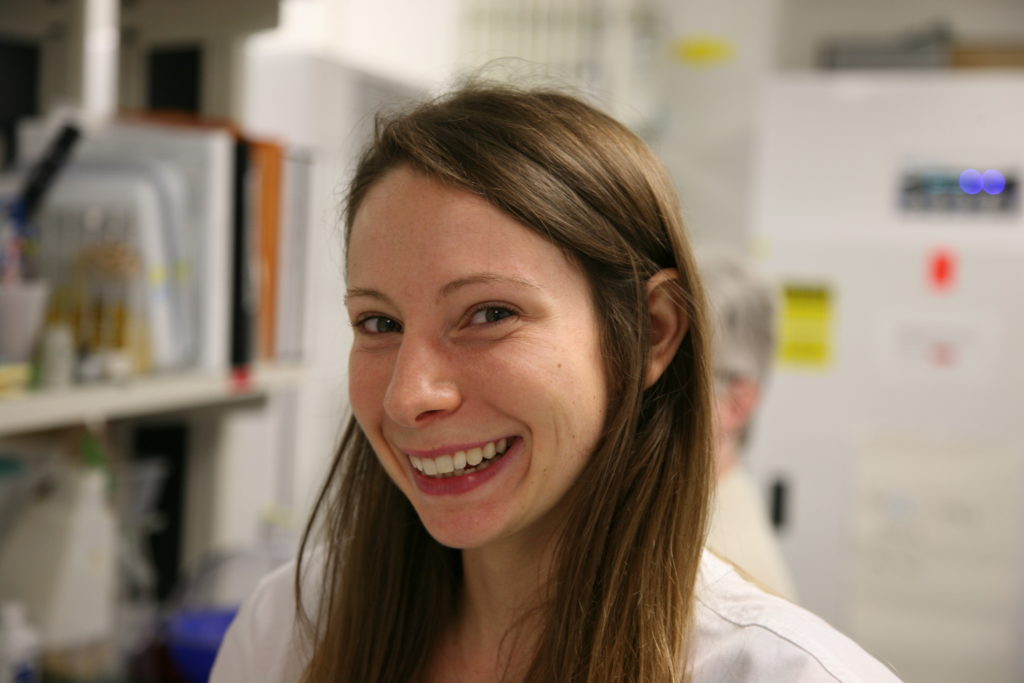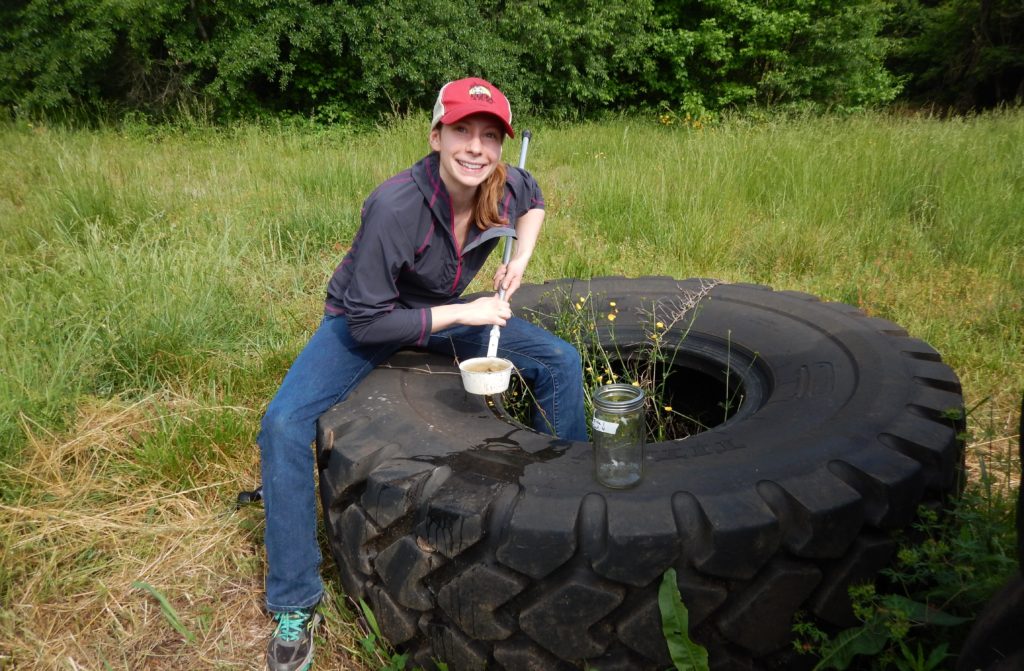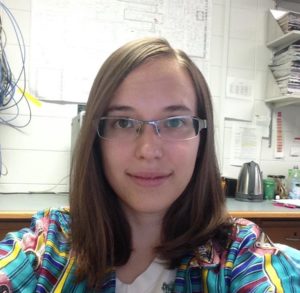Trainee Spotlight: Kerri Miazowicz

Kerri Miazowicz is a 3rd year Ph.D. trainee in Courtney Murdock‘s laboratory. She grew up in southern Michigan where she received a B.S. in microbiology from Michigan State University in 2012. After graduation, she spent more than two years as a Postbaccalaureate IRTA Fellow at the Rocky Mountain Laboratories, NIH/NIAID in Montana with the Virus Ecology Unit within the Laboratory of Virology.
Choosing the University of Georgia
Kerri chose the University of Georgia for her graduate training because she wanted to conduct interdisciplinary research related to disease ecology and vector-borne disease transmission.
“UGA hosts many experts across several scientific disciplines allowing me to link molecular biology and individual level phenotypes to population-level dynamics,” said Kerri. ” UGA is also home to the Center for Tropical and Emerging Global Diseases and the Center for Ecology of Infectious Diseases (CEID), which both provide valuable research resources and expertise.”
Research Focus
Kerri’s research focuses on environmental drivers of mosquito-borne disease transmission. Mainly, understanding how the environment affects the mosquito vector and modeling the consequences of these interactions on transmission dynamics.
“My current project revolves around temperature effects on Anopheles stephensi [the primary mosquito that transmits malaria in Asia] trait performance (longevity, biting frequency, and population growth), and mathematically exploring the implications these effects have on transmission.”
She will also investigate how Plasmodium, the parasite that causes malaria, exposure and infection modify these mosquito traits which are critical in transmission events.
“I find vector-borne diseases interesting due to the immense complexity that these systems contain,” said Kerri. “I also find it interesting to think about ‘scaling-up’ the outcome of molecular interactions and individual phenotypes to the context of population-level dynamics.”
Kerri has been able to conduct fieldwork within the Athens area to study how microclimate across an urban area can influence mosquito development along with adult mosquito traits with are important for mosquito-borne disease transmission.
“If I was able to travel for research purpose, it would be to India or Africa, where malaria is endemic, to study local mosquito populations.”

Trainee Earns Accolades
Kerri has received a number of awards recognizing her academic and research achievements. In 2009, she was named a 2008-2009 Regional Semifinalist for the Young Epidemiology Scholars (YES) Program. In 2010, Kerri was named a National Institutes of Health Undergraduate Scholar.
In 2014, she received an OITE Travel Award to attend the NIH Graduate and Professional School Fair, which allows NIH interns and postbacs to explore where the next step in their training will be.
Since coming to UGA, she has received an American Society of Virology Travel Award (2016) and a National Science Foundation Graduate Research Fellowship that funds 3 years of research training. In 2017, she received a travel award to attend the annual meeting of the Vector Behavior Ecology Research Coordination Network (VectorBITE RCN) at Imperial College in London.
What’s Next
While Kerri has a few more years of training at UGA, she hopes to continue conducting scientific research related to disease ecology and transmission dynamics in either an academic or government setting.
Your financial gift to CTEGD funds the Training Innovations in Parasitologic Studies (TIPS) Fellowships which allows trainees like Kerri Miazowicz to travel to international field sites for research. Give Today!



 Mosquitoes provide an interesting system for addressing these issues because almost all species must feed on blood from a vertebrate host, such as humans or another animal, to reproduce. However, blood feeding exposes mosquitoes to microorganisms that cause disease in mosquitoes, the vertebrate hosts mosquitoes feed upon, or both. Background studies by Strand and Brown have shown that certain hormones co-regulate reproduction and immune defense.
Mosquitoes provide an interesting system for addressing these issues because almost all species must feed on blood from a vertebrate host, such as humans or another animal, to reproduce. However, blood feeding exposes mosquitoes to microorganisms that cause disease in mosquitoes, the vertebrate hosts mosquitoes feed upon, or both. Background studies by Strand and Brown have shown that certain hormones co-regulate reproduction and immune defense.